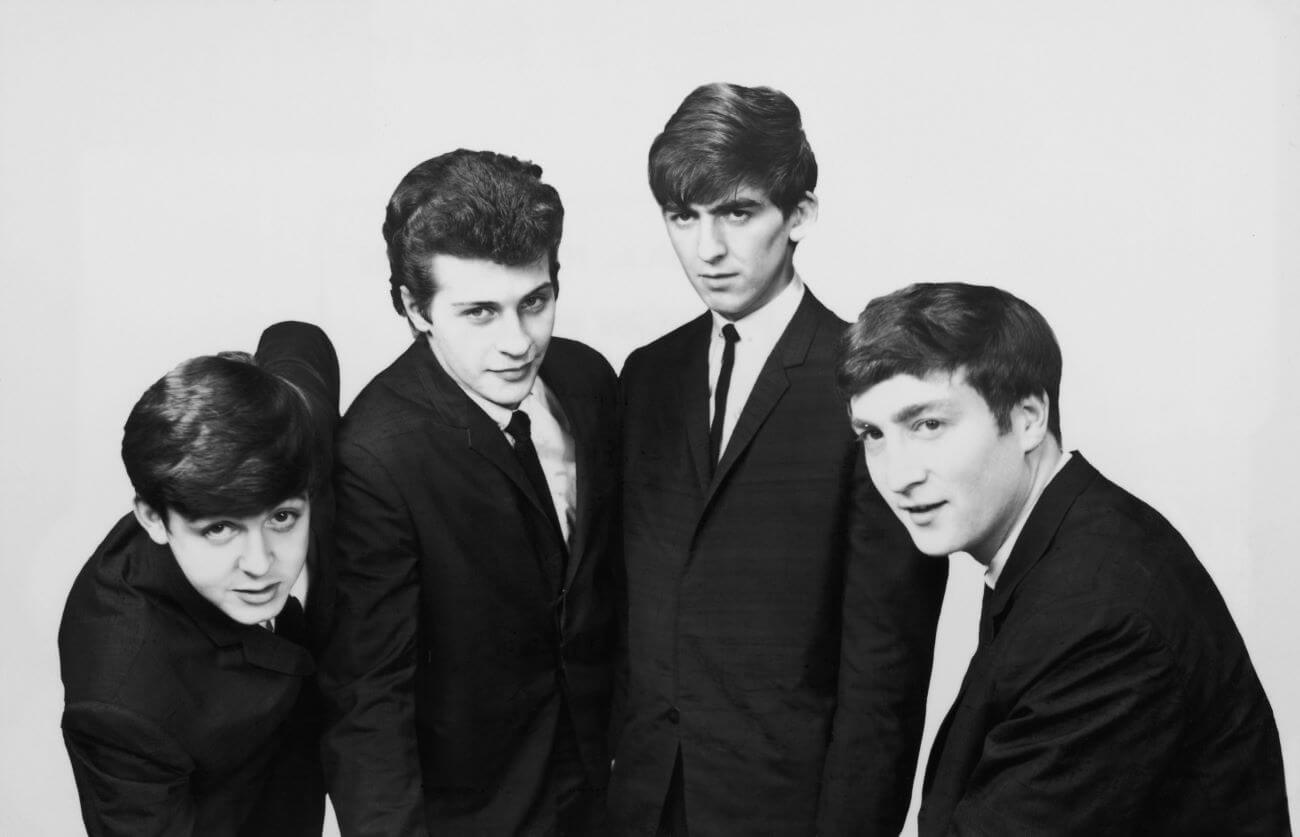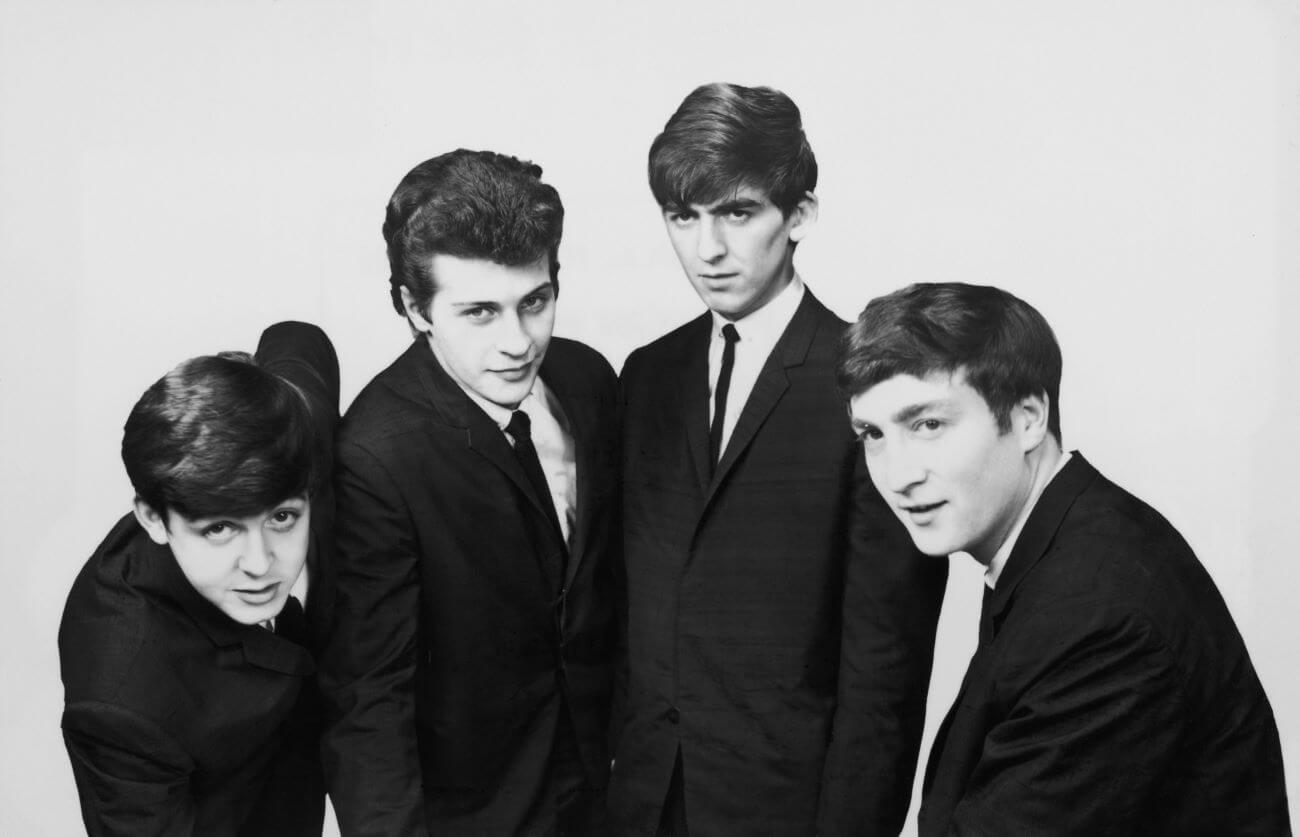
George Harrison Was the Most to Blame for Pete Best Getting Fired, Claimed Neil Aspinall
Before Ringo Starr was the drummer, The Beatles included John Lennon, Paul McCartney, George Harrison, and Pete Best. They played together as a group for two years before the band decided they wanted to replace Best with Starr. They fired him unexpectedly, and nobody could give him a straight answer about why they wanted him out. According to the band’s longtime road manager Neil Aspinall, though, Harrison was the driving force behind Best’s exit from the group.

George Harrison reportedly wanted Pete Best out of The Beatles
When Lennon, McCartney, and Harrison came to their manager, Brian Epstein, and told him they wanted to fire Best, he was unhappy with them. Best had one of the largest fan followings in the group; dropping him made little sense to Epstein.
“I knew how popular Pete was,” Epstein said, per The Beatles: The Authorized Biography by Hunter Davies. “He was incredibly good-looking, with a big following. I had got on well with him. In fact, he’d been the first one I’d got to know. I thought the way through was through Pete because he was the easiest to get to know, the simplest.”
They were insistent, though, and Epstein relented. He gave Best a variety of reasons why they no longer wanted him in the band, but none seemed to be the full truth. Aspinall believed that it had the most to do with the fact that Harrison wanted Starr in the band.
“Neil thinks it was George who was most to blame,” Davies wrote. “He thinks John really was fairly close to Pete, and Paul, being as popular with the fans as Pete, would never have done anything like that, as he might have been suspected. Neil says they all agreed to it, but it was George who gave Brian the final push as George was the one who was the biggest admirer of Ringo. George’s punch in the eye, says Neil, proves that theory.”
The drummer struggled to face his former bandmates afterward
After Best left The Beatles, he avoided his former bandmates. Epstein even offered him a job with another group, but he turned it down because he didn’t want to see them at the gig.
“I did offer to keep Pete on in another group,” Epstein said. “I was a bit annoyed he didn’t turn up at Chester in the evening, when he said he would. I expected him. I hadn’t realized he couldn’t face meeting the boys again.”
Best said he was hurt and embarrassed, so he avoided everyone afterward.
“How could I? What was the point, as they didn’t want me anymore?” he asked. “I just sat home for two weeks. Not knowing what to do.”
George Harrison didn’t like the dynamic Pete Best brought to the group, which might have helped them in the end
Harrison was friendly with Starr, which might have been why he pushed so hard for him to join the group. He also didn’t like the group dynamic when Best was involved.
“There was another thing: Pete would never hang out with us,” he said in The Beatles Anthology. “When we finished doing the gig, Pete would go off on his own and we three would hang out together, and then when Ringo was around it was like a full unit, both on and off the stage. When there were the four of us with Ringo, it felt rocking.”
The way the band fired Best was inconsiderate and rude; they never spoke to him about it and actively avoided him afterward. And, it’s difficult to say if they would have been as successful with Best as a drummer. They were close to fame at that point, hitting their first No. 1 not long after firing him.
Regardless, much of The Beatles’ success had to do with their dynamic. Their music won them fans, but their personalities as individuals and a group caused Beatlemania. If they hadn’t gelled as well — as Harrison said it was with Best in the group — they might not have seen the same success. Beatles films like A Hard Day’s Night and Help! would not have worked as well. Harrison may not have been thinking that far ahead, but by pushing to include Starr in the group, he inadvertently helped the band.


